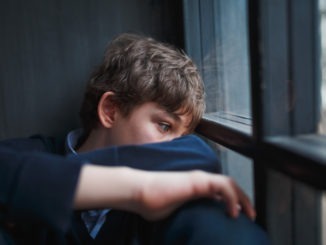
As reported by BBC News, more children than ever have been referred to the NHS for the most serious mental health problems, the latest figures show
Some 409,347 under-18s were referred for specialist care for issues such as self-harm and eating disorders between April and October 2021. That was 77% higher than the same period in 2019. Head teachers and a children’s charity say they are seeing a rise in other less severe issues, too.
The government plans to have 400 mental health teams to support schools by 2023. The referrals data, analysed by the Royal College of Psychiatrists for BBC News, includes the most serious and urgent cases where the child faces an immediate risk from an eating disorder, self-harm or suicidal thoughts. There were 349,449 under-18s in touch with NHS child and adolescent psychiatric teams at the end of October 2021, which is the highest number on record.
Only the young children and teenagers with the most serious mental health problems are referred for specialist care. But schools are reporting a surge in mental health problems below this high threshold, with pupils needing extra support such as counselling.
The children’s mental health charity, Place2Be, and the union, National Association of Head Teachers (NAHT), sent a survey to schools and more than 1,000 teaching and support staff responded. Almost all described seeing an increase in emotional and mental health issues among pupils since the pandemic, including anxiety and low self-esteem.
Schools were closed for months and exams cancelled for two years, as everyone had to stay at home during various lockdowns to control the spread of COVID.
“COVID is trash,” says Isaac, 7, as he shows me his drawing of flies buzzing around a bin on fire. It illustrates his feelings about coronavirus.
He’s drawn himself “feeling sad because I feel like I’m trapped in the telly”, while his grandma tries “to scare COVID away”.
Isaac’s drawing is a task as part of a mental health workshop he’s in with other Year 3 and Year 4 pupils at Seascape Primary School in Peterlee, County Durham. Grace, 8, remembers her parents telling her about the pandemic beginning.
She’s drawn herself “curled in the corner” of a prison cell, “because I felt trapped in lockdown”.
In a normal year the team of counsellors that work at the school would see about 100 children but in just the autumn term almost as many asked for help. Many are anxious or struggling to manage with being back in a busy school.
As well as providing mental health support, Seascape is bringing back music lessons, football tournaments and school trips as part of its effort to boost children’s wellbeing. But there are different pressures for teenagers – especially those who face exams this summer for GCSEs. Almost half of secondary schools (46%) said pupils’ mental and emotional health was the biggest challenge in helping them catch up with learning, in recent government research.
Among the Year 11 pupils feeling the pressure is Harley who has had extra support from his school, Horizon Community College in Barnsley. Harley’s self-esteem plummeted after coming out of lockdown in 2021.
“It was very uncomfortable for the first two or three months. Some of us had put on weight and it felt awkward,” he tells me.
“The time I lost with my friends didn’t help and it took me a long, long road to get back.”
Schools say the pressures of the pandemic have made mental health an even greater priority, with longer waits for specialist help.
An extra £79m for improving mental health support in England was committed by the government last year. It has also promised 400 mental health support teams by 2023, to work with schools to provide extra counselling.
The BBC has learned at least 183 are up and running, with more staff in training. These teams have been welcomed, but the charities in the Children and Young People’s Mental Health Coalition warn they will only cover about a third of England’s pupils.
In the meantime, pupils such as Harley have to rely on the school for support – which he says is helping.
“Talking just gives you time to breathe, and it helps me control what’s going on in my head,” he says.
“It’s a weight off my chest.”




Be the first to comment